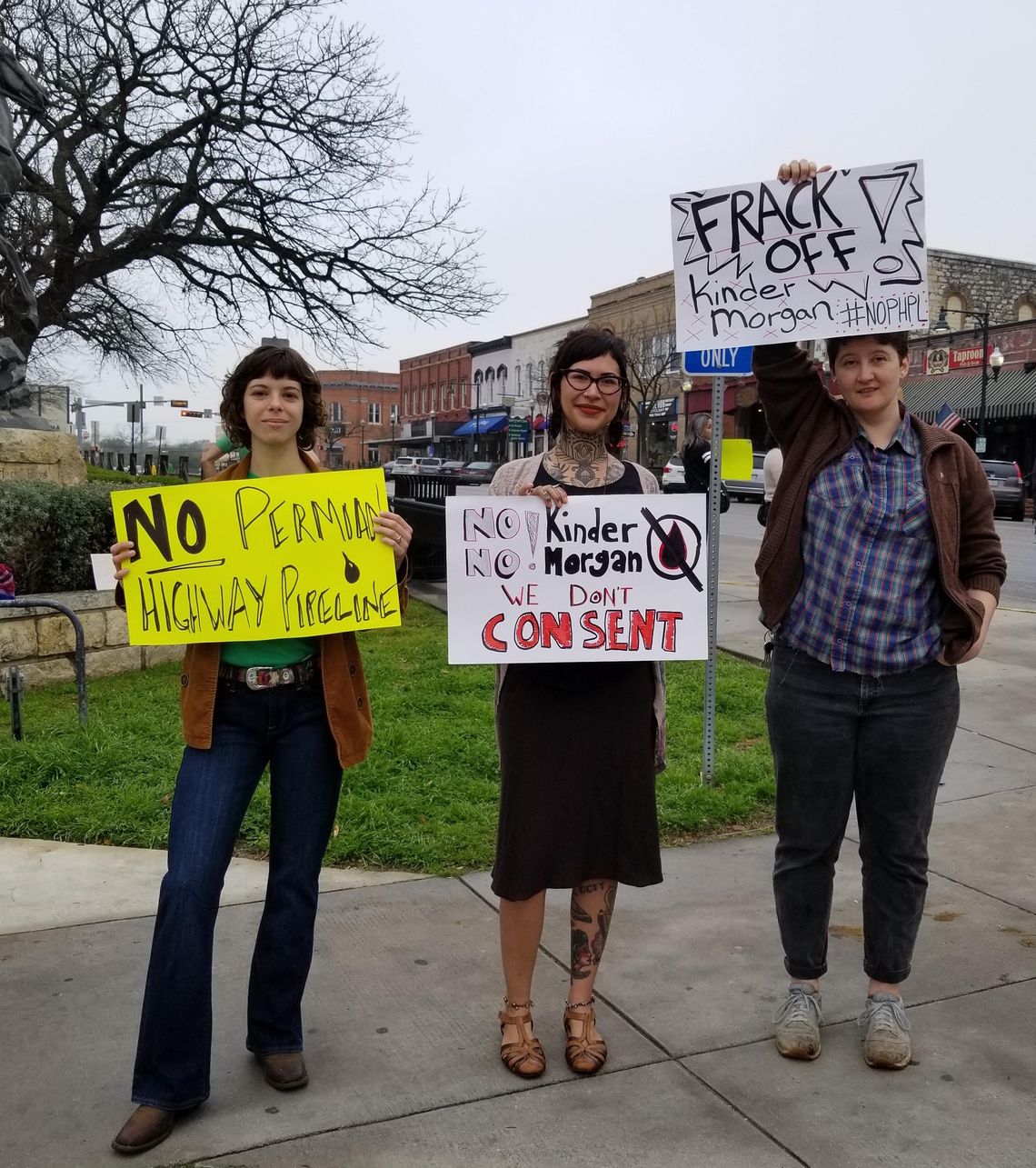“We are not going to let this go through our valley. We just aren’t,” David Baker, executive director of the Wimberley Valley Watershed Association, said to a rousing cheer from the hundreds in attendance at last week’s meeting in Wimberley on the proposed 42-inch Kinder Morgan natural gas pipeline.
As the previous owner of Jacob’s Well, who helped steward the property into the hands of Hays County to become a protected natural area, Baker has fought many water-related battles in the Wimberley Valley.
“I think of all the years I’ve worked on water issues, this is the most threatening thing I’ve ever seen come to this region. We have to stand up, and we have to ask Kinder Morgan to really look at what they are doing and ask them to reroute this.”
This was no simple informational meeting for the community to find out more about the proposed pipeline. In reality, it was an indepth explanation from half a dozen locals, politicians and experts on how to fight a pipeline.
“My family is prepared to fight this pipeline with all of our resources,” Lucy Johnson, whose family owns two large ranches along the pipeline route, said. “… This is going to be a fight that last for months or years and know that we are all here to help you.”
Representatives from the Hays Trinity Groundwater Conservation District (HTGCD) and the Barton Springs Edwards Aquifer Conservation District (BSEACD) said they are concerned about the potential impacts of the pipeline on the aquifer and brought up numerous issues and questions during the meeting.
“A lot of these questions can be answered with an environmental analysis that would be required if this pipeline crossed state lines,” BSEACD Board President Blayne Stansberry said. “I would assume Kinder Morgan knows the people to hire for a study, so that is one thing I expect.”
Baker talked about the potential impacts of both the construction and the potential pollution that could come along with a line break or explosion.
The 42-inch pipeline would carry 2.1 billion gallons of natural gas per day from West Texas to the Houston area. It is proposed to bury the line 8 to 10 feet deep over the 430-mile course. The line is planned to be constructed within a mile and a half of Jacob’s Well. It crosses the Blanco River multiple times as well as traveling through the area designated for the Cypress Creek Watershed Protection Plan.
“These areas are really not appropriate for a pipeline,” Baker said.
Beyond the questions of environmental concern, Hays County Commissioner Lon Shell, who hosted the meeting, also brought up concerns about the financial impact to properties both on the line and throughout the county.
“What does that do to the value of your property and to your inheritance to your children?” Shell said. “…Beyond environmental concerns, it’s the impact this could have financially to many of us who aren’t even involved.”
Shell brought up examples of commercial areas along the crossing of Interstate 35 that would not be able to be developed because of the pipeline easements which would decrease property taxes. Others said that if a person wanted to develop their property in the future, who would want to build a home or neighborhood in the blast zone of such a pipeline.
State Rep. Erin Zwiener said she would try and work in the Legislature to add oversight to the eminent domain process. Currently, there is no agency to appeal to in order to argue against the route of a pipeline in Texas. Zwiener said she was interested in following the process used for electric utilities that must go before the Public Utility Commission to show why a given route is necessary before eminent domain can be used to obtain the right-of-way. It creates a public process to decide where things like electric transmission lines can go.
“This meeting tonight didn’t have to happen,” Zwiener said. “There is no legal requirement for a public meeting (for this situation)… This meeting happened tonight because some of your local leaders saw a need, saw your concerns and made this meeting happen… I am dismayed that this isn’t already a requirement, and I will let y’all know that I can’t make promises about what the Legislature will do, but there is interest across party lines in the fact that landowners and communities can be ignored and steamrolled without a public process and due accountability.”
Kinder Morgan representatives were in attendance at the meeting and said afterwards that it was good to hear the concerns of the community and that this would be a good start for dialog between the impacted groups and people. Kinder Morgan will host its own public meeting at the Wimberley Community Center on Feb. 12.







